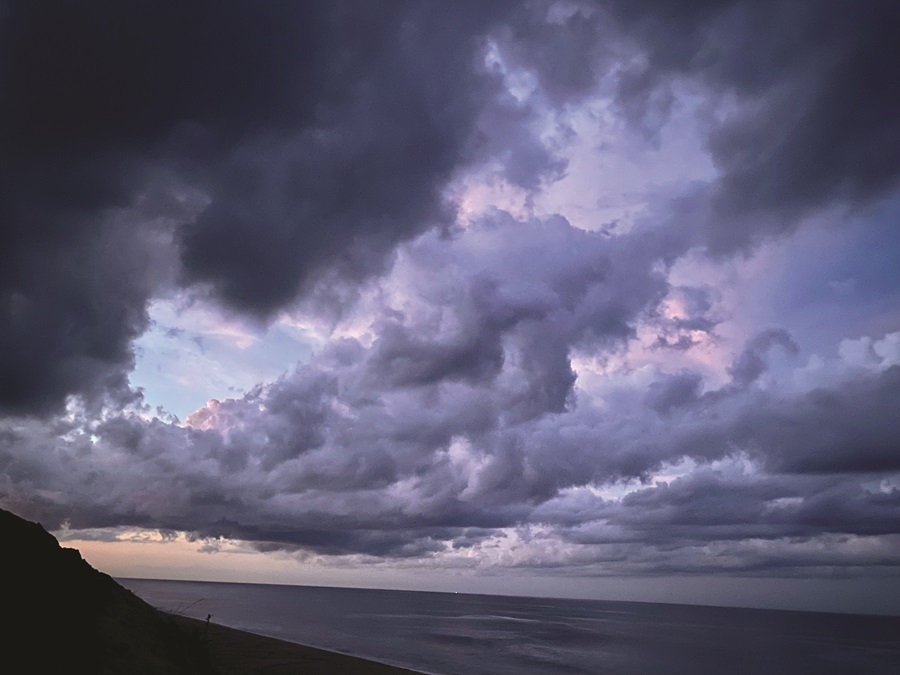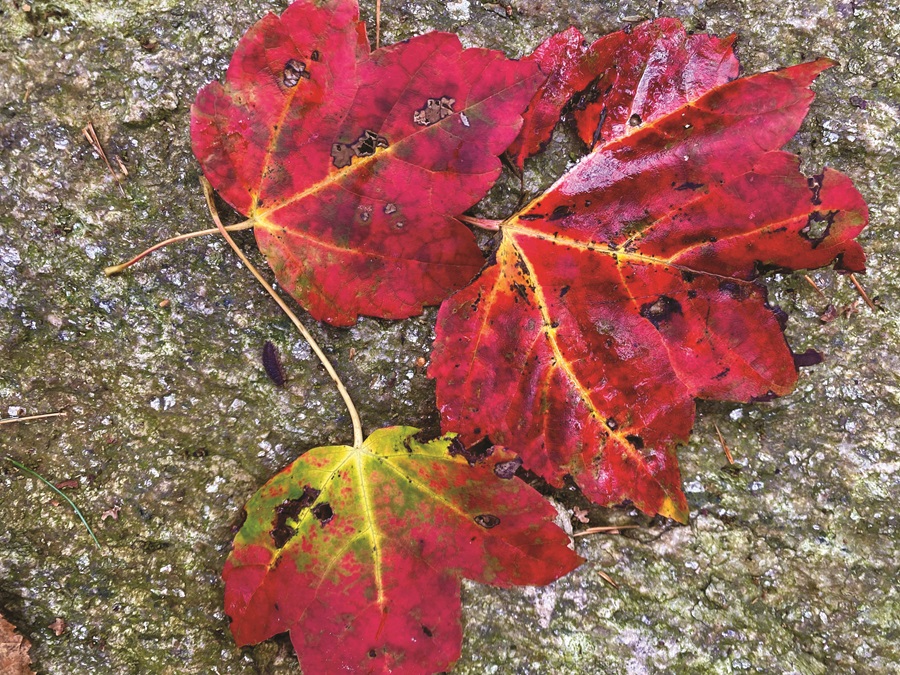Every year, around the middle of November, I feel sad. It is a gentle sort of sadness. It doesn’t inspire tears. It is not sharp or stinging. It is a well-rounded sort of sadness that opens with great patience in the middle of my body. The feeling grows, not painfully, out into my limbs. It fills me slowly, like a cup filling with water. It is the color of the winter sky at dusk, deep violet-blue, distant, cool, and profound.
A few days go by, sometimes a week, before I realize the sadness has moved in. But when I do, I push against it. I stay productive and resist when it calls me to stillness. And then one day, I remember that this old friend returns each year at around this time and that what I am feeling is my body responding to the shift in the balance, to the time when the night envelopes the shoulders of the day in her dark robes.

During the long days of June, the sun shines for 15 hours. Around the middle of September, the day cedes its dominance to the night. By the middle of November, the sun is up for only 10 hours. In mid-December, the sun will rise over the ocean and sink into the bay in only nine hours. The rest of the Earth’s rotation is for the cold and hungry night. Fifteen hours of black, softened on each end with dusky violet-blue.
Each year this darkness sneaks up on me and I am reminded that when the entire world changes I change, too. The light’s low angle and short visits are like words spoken to our bodies, commanding us to slow down and be still.
The trees sleep, their leaves falling and decomposing on the wet ground. Those animals that stay here move around less. They sleep in the ground or huddle together in the backs of burrows and nests, venturing out only to eat. Yet I attempt to carry on at full speed, grinding against my nature.

We live in a time that demands unending consistency in our participation and productivity. The world we have constructed does not consider the fluctuations of the nature in our humanness. It’s as if we’ve fitted our ever-changing forms into an inflexible mold. When, each fall, I change and the mold holds firm, I feel its edges and restrictions.
I feel sad until I remember that we humans are diurnal; we are creatures of the daylight. Our eyes and our minds are tuned to it. We are like those plants whose leaves lift at dawn and droop in the afternoon. The same thing that happens to us over the course of each day happens to us in the course of the year, too. We wake in the growing light of the morning, the spring of our day. We make and do in the summer of our day. As the evening settles in, our autumn, we settle and slow and prepare for night. Night comes, the winter of our day, and we sleep.
Every year, around this time, I am reminded that I am an animal. Only a moment has passed since the time I lived fully in the sand and wind. Not long ago, the skin of my feet was calloused and thick, and instinct was the loudest voice I heard. It has not been so long since I moved inside and turned on the lights and demanded of myself that I not rest.
No matter if I wrap myself in fine clothes, cut my nails, and wear shoes; underneath I am still an animal, still ruled by the things that made me. Days shorten, the night grows long, and a change, inevitable as the tide, comes. My blood slows and my eyelids feel heavy, and I remember, just as much as the sleeping trees and the creatures burrowed in the ground, that I belong to the world outside.



